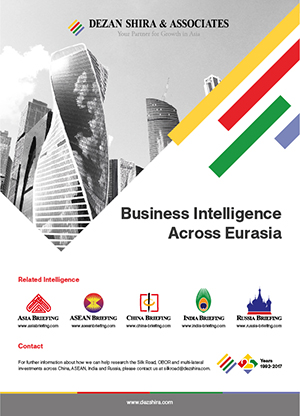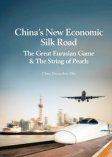Shanghai Cooperation Organisation Comes into Focus for EU as G7 Implodes

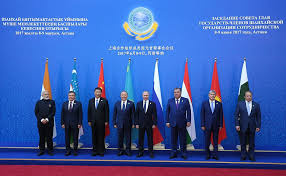 While the United States, their President Donald Trump, and the fractious meetings with the G7 have been gathering all the headlines, a competing and increasingly influential organization was holding its summit in Qingdao this weekend. Both summits are notable for their polarity, the G7 could almost be renamed “the West” with the exception of Japan, while the Shanghai Cooperation Organisation (SCO) is very definitely “the East”.
While the United States, their President Donald Trump, and the fractious meetings with the G7 have been gathering all the headlines, a competing and increasingly influential organization was holding its summit in Qingdao this weekend. Both summits are notable for their polarity, the G7 could almost be renamed “the West” with the exception of Japan, while the Shanghai Cooperation Organisation (SCO) is very definitely “the East”.
However, similarities between the two organizations stop there. The G7 is primarily a trade bloc, and changes its nature on occasion – it has been previously known as the G6 and G8, depending on which countries were members. While Russia was expelled from the G8 grouping in 2014, it is still a member of the SCO.
Other comparisons can be seen below:
 |
G7Members: |
|
|
|
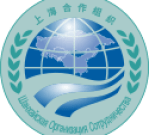 |
SCOMembers: |
* not including ASEAN, CIS or UN
While the comparisons are interesting, they do not tell the whole story. The G7 is an informal “club” based grouping, principally the most “advanced” economies in the world, although I find the term somewhat archaic and exclusive. Who, for example, measures what “advanced” actually means? The grouping’s current structure is also somewhat in doubt, with President Trump apparently not impressed either with the subject matter nor his fellow delegates. It remains to be seen what the future of the G7 will be.
The SCO, however, is more institutionalized, opting for a rather structured approach. It covers a wider range of issues, including security, counter-terrorism, intelligence, as well as economic and cultural cooperation. It is key to China’s Belt and Road ambitions as it sits right across all of the overland portion and much of the maritime routes. As such, the SCO has essentially become the regional body for discussing the integration of Eurasia. It could even be arguably considered more important than the G7 as its modus operandi is more concerned with development rather than contemporary trade issues.
The SCO initially included China, Kazakhstan, Kyrgyzstan, Russia, Tajikistan, and Uzbekistan when formed in 2001. After India and Pakistan joined, the SCO became the largest regional body in the world in terms of geographical coverage and population, spanning across Eurasian continent and embracing over 3 billion people.
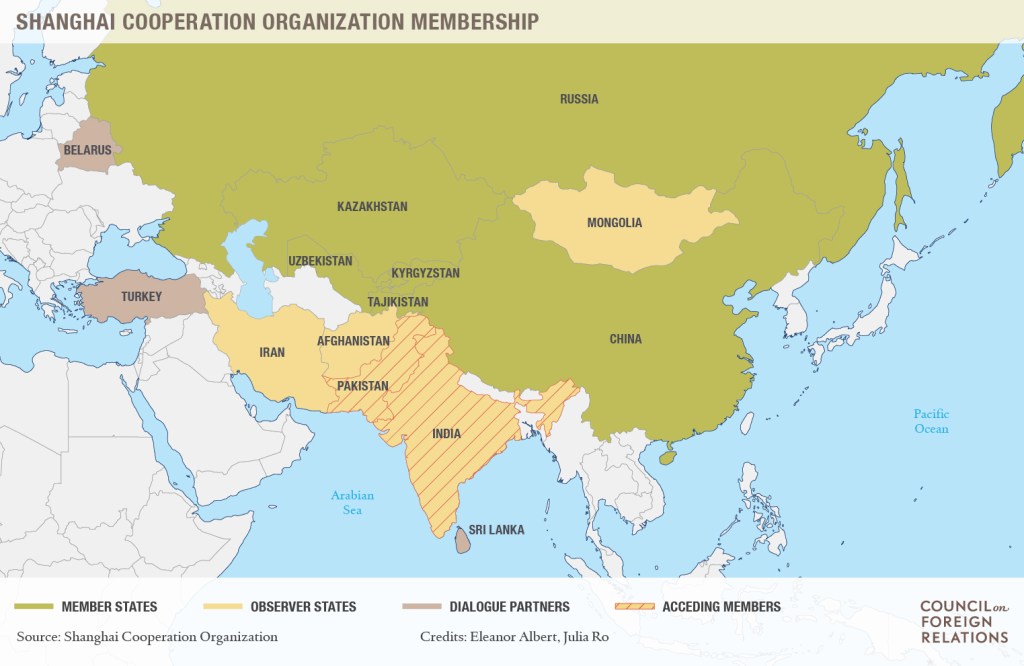
This weekend’s SCO summit took place in Qingdao, and included the Presidents, Prime Ministers, and most Finance Ministers of the participating nations and organizations. The Qingdao summit was the first meeting in which India and Pakistan were in attendance as full SCO members. Their official accession to the alliance was approved at the 2017 SCO meeting in Kazakhstan’s capital, Astana.
The Indian Prime Minister Narendra Modi had been busy in preparations, meeting first with Chinese President Xi Jinping in Wuhan last month and then again with Russian President Putin in Sochi last week.
China’s President Xi Jinping gave the leaders of Pakistan and India a “special welcome” to their first SCO summit, while Russian leader Vladimir Putin said the new members made the alliance look as it should be. “Regarding the enlargement [of the SCO], we agreed that the current structure is optimal,” Putin said, adding, “we must see how the organization will work in an enlarged mode. If we calculate per capita, the seven countries are wealthier, but the size of the SCO economies combined is larger. And the population is of course much bigger – half of the planet”, Putin stated.
Regional security issues cropped up in the summit’s agenda as terrorism – sometimes fueled by Islamist ideology – being highlighted as the most severe challenge facing the SCO. In Qingdao, SCO leaders said they were concerned about chemical and biological weapons being obtained or used by terrorists, promising to support every international effort to tackle the issue. Islamist fighters returning to their home countries is another threat facing the member states, the Qingdao summit’s declaration said. Returnees “are finding shelter in third countries to carry on [acts of terror] in SCO area,” it stated, calling for better intelligence sharing and easier extradition procedures for terrorist suspects among the organization’s members.
Syria and Afghanistan are the hotspots in the immediate vicinity to SCO borders and the leaders’ talks were also focused on bringing lasting peace to the war-ravaged countries. Political solution and national dialogue are key to put an end to war in Syria, the declaration said, noting the peace process must respect Damascus’ sovereignty and territorial integrity. SCO members have praised efforts by Russia, Turkey, and Iran who brokered the so-called de-escalation zones where hostilities between government forces and rebels have been ceased. In Afghanistan, peace should be ensured by the locals themselves and for the locals, SCO members said.
The Qingdao summit wasn’t limited to terrorism and security challenges. The SCO was founded to help its members improve trade ties and make way for mutual investments. Some SCO countries are feeling the impact of Trump’s protectionist ‘America First’ policy, accompanied by curbs on exports and imports. China, one of the leading SCO members, is locked in a standoff with the US over tariffs on goods, whereas Russia has been subject to what many believe are discriminatory sanctions imposed by Washington and the EU. It is somewhat ironic that the United States is now appearing to subject members of the G7 to those same sanctions.
“We should reject selfish, short-sighted, narrow and closed-off policies. We must maintain the rules of the World Trade Organization, support the multilateral trade system and build an open global economy”, Chinese President Xi Jinping said.
The situation with President Trump’s position has only become increasingly confrontational in the past few weeks. Attending the St.Petersburg International Economic Forum ten days ago, I noted the overwhelming view that the US was a “global betrayer of trust“. That viewpoint will undoubtedly be forming in the minds of some of the members of the G7, while President Trump has also indicated the US could pull out of the World Trade Organization. I have previously noted how SCO participants are heavily involved in recreating Eurasian trade flows.
If the US does leave the WTO, re-balancing international responsibility for sustainable trade growth will fall to Moscow, Beijing, Delhi, and Brussels. Should Trump take that step, we may well see the European Union become a participating observer at future SCO summits.
About Us
Silk Road Briefing is produced by Dezan Shira & Associates. The firm provides strategic and operational advise to foreign governments and MNC’s throughout Eurasia with offices throughout China, ASEAN, India & Russia. For more information please email info@dezshira.com or visit www.dezshira.com
 Related Reading:
Related Reading:
Silk Road and OBOR Business Intelligence
Dezan Shira & Associates´ Silk Road and OBOR investment brochure offers an introduction to the region and an overview of the services provided by the firm. It is Dezan Shira´s mission to guide investors through the Silk Road´s complex regulatory environment and assist with all aspects of establishing, maintaining and growing business operations in the region.
China’s New Economic Silk Road
This unique and currently only available study into the proposed Silk Road Economic Belt examines the institutional, financial and infrastructure projects that are currently underway and in the planning stage across the entire region. Covering over 60 countries, this book explores the regional reforms, potential problems, opportunities and longer term impact that the Silk Road will have upon Asia, Africa, the Middle East, Europe and the United States.
